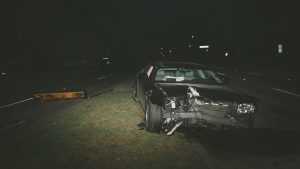The Legal Definition of Negligence
In personal injury cases, the concept of negligence is very important. Typically, someone needs to have acted negligently for someone to successfully bring a personal injury lawsuit against them. This will be the primary thing the plaintiff’s attorney will be trying to prove, but how is negligence defined by the law? This guide will explain this legal concept thoroughly. You should leave it to your auto accident lawyer in Indianapolis, IN to fight your case for you.
Negligence
There are four components of legal negligence. Each component needs to be proven independently. Likewise, each component builds upon the previous one, which means it is vital that legal negligence is proven correctly and in the right order. The four components are:
- Duty
- Breach
- Causation
- Damage
First, it must be established that the defendant had a duty to act a certain way. As citizens, there are certain duties that society places on us, such as the duty not to drive drunk or to create a safe working environment for employees, as an auto accident lawyer in Indianapolis, IN can explain. Basically, if an average person would expect a certain behavior from someone, then that behavior could be considered a duty. It is possible to have a duty to do something or to not do something. This is the foundation of negligence.
Second, it must be proven that the defendant violated whatever duty he or she had, as an auto accident lawyer in Indianapolis, IN can attest. This is called a breach of duty. Third, this breach of duty must have caused the injury. It is possible that a breach of duty is coincidental to an injury. For example, a doctor who misdiagnoses an illness may have breached his or her duty to provide a certain level of care. However, if the medicine for the incorrect illness was the same as the correct illness and the patient failed to get better anyway, then the injury was not a result of the breach of duty. In this scenario, the doctor would likely not be found liable for the injury.
Finally, it must be established what the damage is. For personal injury cases, the damage is an injury. The injury must be real and significant. Very minor injuries are not good grounds for a personal injury lawsuit.
It takes a lot to prove whether someone acted negligently. It is a long process that must be done correctly at each step or else the whole thing falls apart. This is why you should never try to represent yourself. Find an auto accident lawyer in Indianapolis, IN that you can trust who specializes in personal injury cases.




